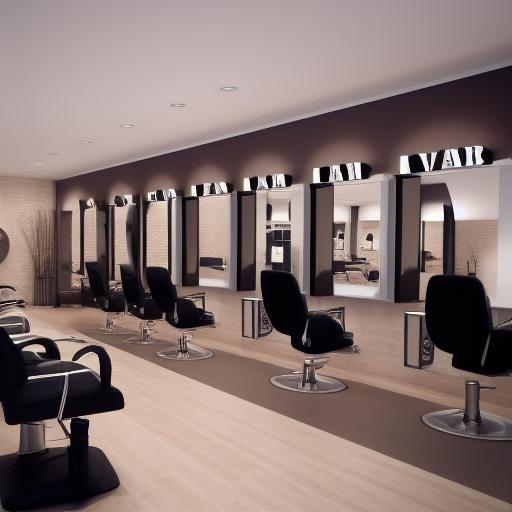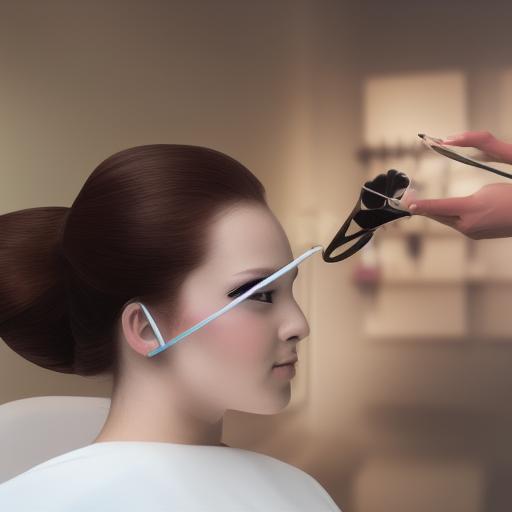
Starting a beauty salon is exciting! You’ve perfected your techniques, built a loyal clientele (or you’re on your way), and you’re ready to take the leap into entrepreneurship. But before you start booking appointments in your dream space, there’s a crucial step you absolutely must address: choosing the right legal structure for your business. This decision will impact everything from your personal liability to your tax obligations and long-term growth potential. This comprehensive guide will break down the top five legal structures for beauty salons, helping you make the best choice for your unique situation.
Keywords: Beauty salon legal structure, business structure for salon, sole proprietorship, partnership, LLC, S corp, corporation, beauty salon business plan, salon legal advice, small business legal structures, beauty industry legal requirements
1. Sole Proprietorship: Simple, but Risky
A sole proprietorship is the simplest and most common structure for small businesses, including beauty salons. It’s straightforward to set up – you essentially start operating under your own name without any formal registration.
Pros:
- Ease of setup: Minimal paperwork and administrative burden.
- Complete control: You are the sole owner and decision-maker.
- Simple taxation: Profits and losses are reported on your personal income tax return (Schedule C).
Cons:
- Unlimited personal liability: Your personal assets (home, car, savings) are at risk if your business incurs debt or faces lawsuits. This is a major drawback. A single unhappy client could potentially wipe out your personal finances.
- Limited fundraising options: Securing loans or attracting investors can be challenging.
- Business lifespan tied to owner: The business dissolves if you sell it, retire, or pass away.
Example: Sarah, a skilled hairstylist, starts working from home, advertising her services through social media. She’s operating as a sole proprietor.
Tip: Consider purchasing professional liability insurance to mitigate some of the risks associated with unlimited liability.
2. Partnership: Sharing the Load (and the Liability)
A partnership involves two or more individuals who agree to share in the profits and losses of a business. There are different types of partnerships, including general partnerships and limited partnerships.
Pros:
- Shared resources and expertise: Partners can pool their capital, skills, and networks.
- Easier fundraising than sole proprietorships: Securing loans might be easier with multiple partners.
- Relatively simple setup: Compared to corporations or LLCs, partnerships are easier to establish.
Cons:
- Unlimited personal liability (in general partnerships): Similar to sole proprietorships, partners typically face unlimited personal liability for business debts and legal issues.
- Potential for disagreements: Partner disputes can significantly hinder the business’s progress.
- Shared profits: Profits are divided among partners according to the partnership agreement.
Example: Maria and Elena, both experienced estheticians, decide to open a spa together as a general partnership. They share the costs, responsibilities, and profits.
Tip: A well-drafted partnership agreement is crucial to outlining each partner’s responsibilities, profit-sharing arrangement, and dispute resolution mechanisms. This prevents future conflicts.
3. Limited Liability Company (LLC): The Popular Choice
An LLC offers the best of both worlds: the simplicity of a sole proprietorship or partnership with the limited liability protection of a corporation. This structure is increasingly popular among small businesses, including beauty salons.
Pros:
- Limited liability: Your personal assets are protected from business debts and lawsuits.
- Flexible management structure: You can choose to manage the LLC as a sole member, a partnership, or even have a more formal management structure.
- Pass-through taxation: Profits and losses are passed through to the owners’ personal income tax returns, avoiding double taxation.
- Credibility: An LLC often appears more professional and credible to clients and potential investors than a sole proprietorship or partnership.
Cons:
- More complex setup than sole proprietorship or partnership: You will need to file articles of organization with your state.
- Annual fees and compliance requirements: LLCs typically require annual filings and compliance with state regulations.
- Potential for state-specific regulations: The rules and regulations governing LLCs can vary significantly from state to state.
Example: David, a successful makeup artist, decides to form an LLC for his burgeoning makeup studio. This shields his personal assets from potential business liabilities.
Tip: Consult with a legal professional or accountant to understand the specific LLC requirements in your state and to ensure you comply with all regulations.
4. S Corporation (S Corp): Tax Advantages for Higher Earnings
An S corp is a more complex structure that offers significant tax advantages for businesses with higher profits. It’s not typically the best choice for newly established beauty salons with low profits, but it becomes more advantageous as the business grows.
Pros:
- Tax savings: S corps can significantly reduce self-employment taxes by paying yourself a salary as an employee and distributing remaining profits as dividends. This can result in substantial tax savings compared to other structures.
- Limited liability: Offers the same protection as an LLC.
- Credibility: Similar to LLCs, S corps present a more professional image.
Cons:
- Complex setup and administrative requirements: S corps involve more paperwork and administrative burden than LLCs or sole proprietorships.
- Strict compliance requirements: Meeting the requirements for S corp status requires meticulous record-keeping and compliance.
- Potential for higher legal and accounting fees: Managing an S corp typically requires more professional assistance.
Example: A large, established salon chain with multiple locations and high revenue might benefit from structuring as an S corp to minimize its overall tax burden.
Tip: Consult with a tax professional to determine if an S corp structure is appropriate for your specific financial situation. The benefits only outweigh the complexities at a certain level of income.
5. C Corporation (C Corp): For Large-Scale Operations and Public Offerings
A C corp is the most complex and formal legal structure. It’s generally best suited for large, established businesses with plans for significant growth and potential public offerings. It’s rarely the ideal choice for a newly established beauty salon.
Pros:
- Limited liability: Provides strong protection for personal assets.
- Potential for attracting investors: The structure is attractive to investors seeking to invest in a growing business.
- Easier to raise capital: C corps have more options for fundraising compared to other structures.
Cons:
- Double taxation: Profits are taxed at the corporate level and again when distributed to shareholders as dividends. This is a major disadvantage for most small businesses.
- Complex setup and ongoing administrative burden: Requires significant paperwork and compliance.
- High legal and accounting costs: Managing a C corp incurs significant professional fees.
Example: A national beauty salon chain with hundreds of locations and plans for an IPO would likely choose a C corp structure.
Tip: For most beauty salons, especially those just starting, a C corp is generally not the most suitable choice.
Choosing the Right Structure for Your Beauty Salon
Selecting the appropriate legal structure is a crucial decision that will significantly impact your business’s success. Consider these factors:
- Liability concerns: How much personal risk are you willing to take?
- Tax implications: Which structure offers the most favorable tax implications for your projected income?
- Future growth plans: Do you anticipate rapid growth and need a structure that can adapt?
- Funding needs: Will you need to secure loans or attract investors?
- Administrative burden: How much paperwork and administrative work are you prepared to handle?
Learn Business: Your Partner in Business Success
Navigating the complexities of starting and running a beauty salon can be overwhelming. This is where Learn Business (https://learn-business.org) steps in. Learn Business offers invaluable resources, guidance, and templates tailored to help entrepreneurs like you succeed. They provide comprehensive materials on business planning, financial management, legal compliance, and much more, specifically designed for small businesses in the beauty industry. Their templates for business plans, partnership agreements, and other crucial documents can significantly simplify the process of setting up your salon and ensuring its long-term success. Check out their resources to find templates and guides related to legal structures, tax planning, and other crucial aspects of running a successful beauty salon. Their tailored approach makes understanding complex business concepts much easier.
Conclusion: Laying a Strong Foundation for Your Beauty Empire
Choosing the right legal structure is one of the most important foundational steps in building a thriving beauty salon. Carefully weigh the pros and cons of each structure, considering your current situation and future aspirations. Remember to seek professional advice from legal and financial experts to ensure you make the best decision for your unique circumstances. Don’t underestimate the power of proper planning and preparation – it’s the key to turning your dream salon into a reality. And don’t forget to leverage the resources available at Learn Business to streamline the process and increase your chances of success. Your future clients – and your peace of mind – will thank you for it.


Leave a Reply